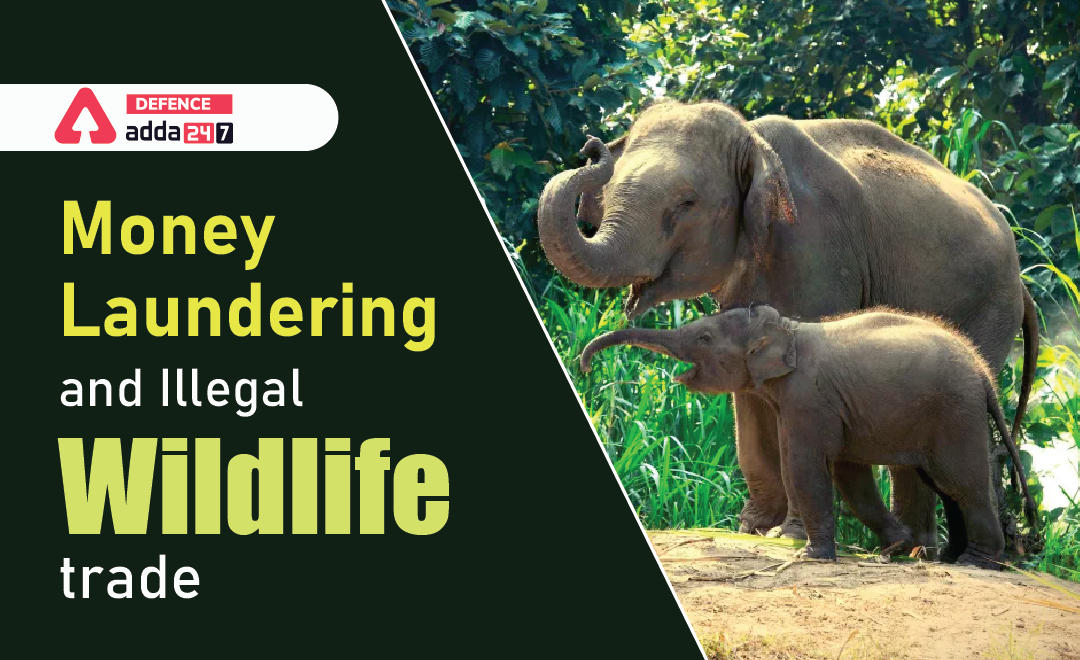Money Laundering and Illegal Wildlife Trade
Money laundering in Illegal Wildlife Trade is the way of doing Illegal wildlife trade by importing-exporting in shell companies and in front companies such as plastics, timber, frozen foods or artwork to disguise their activities by traffickers.
Even the businesses like as taxidermists, farms, traditional medicine, decor and jewelry, fashion, breeding facilities, pet shops and zoos are also involved in it. Laundering methods include doing payment in cash, printing false receipts for other expenses and accepting money through local money value-transfer systems. In addition to this, technology also gave a push to this. Using online marketplaces and mobile, doing social media-based payments and with the help of darknet. trafficker have found an easy and fast way to do the illegal transaction.
Other than dealing in money, Criminals also launder using other methods by dealing in luxury items, vehicles, artworks and property. One syndicate in South Africa, led by a former police officer, hunted rhinos primarily to sell their horns, before laundering the money by purchasing property and luxury vehicles to the value of around $1million.
To deal with the issue of Money Laundering there is a global organization – FATF. The Financial Action Task Force (FATF) is an inter-governmental organization that combats money laundering. They have released the first global report on the Illegal Wildlife Trade in 2020 and their findings tells a lot about the gravity of the alarming situation. They mentioned that International Wildlife Trafficking could lead to more zoonotic diseases in the future and described IWT as a “global threat”, which also has links with other organised crimes like modern slavery, drug trafficking and arms trade.
The FATF also shows disappointment on the sluggish attitude of the government on such a serious issue. Despite the huge illegal profits earned by wildlife traffickers, very few national governments are addressing the financial implications of this type of criminal activity.
It’s a problem that has not gone unnoticed even by the United Nations: the UN General Assembly has adopted several resolutions to combat the trade, and even they asked all its members to amend national legislation so that offences connected to the illegal wildlife trade are treated as predicate offences for money laundering.
Way Forward
- The nations should take some major steps and come altogether by providing all relevant agencies with the necessary mandate and tools and sharing relevant information amongst each other so that they could work in an efficient manner.
- All the countries must cooperate with with each other, with international bodies and the private sector to deal with the issue.
- More legislative modifications are required to increase the applicability of anti-money laundering laws to the illegal wildlife trade-linked offences and also ensuring its implementation. India amended the Prevention of Money Laundering Act in 2012 removing a value threshold of ₹30 lakh and above, that was earlier applicable to the wildlife trade predicates.
- Every country must consider IWT as money laundering offences since the proceeds enter the global market through money laundering as it has a potential of becoming a global threat.
- It is the duty of every country to ensure the survival of endangered species and also needs to come to a consensus taking all the stakeholders into a discussion, focusing on public-private partnerships to prevent, detect and disrupt IWT, tracking the monetary funding that fuels it and the organised crime gangs, poachers and traffickers behind it.




 CDS Previous Year Question Papers, Downl...
CDS Previous Year Question Papers, Downl...
 AOC Result 2025 Out, Download Link Activ...
AOC Result 2025 Out, Download Link Activ...
 NDA 1 Admit Card 2025 Out, Download NDA ...
NDA 1 Admit Card 2025 Out, Download NDA ...












